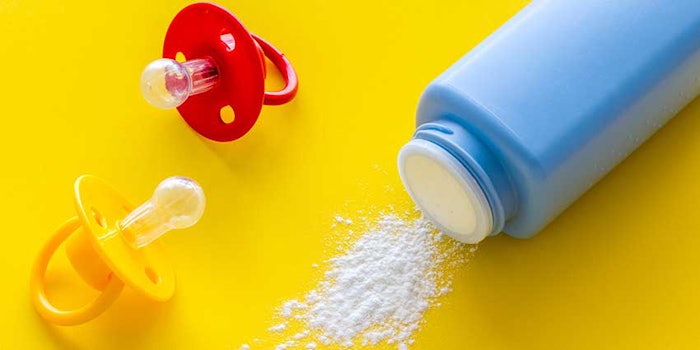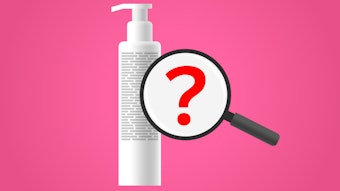
Johnson's Baby Power, Gold Bond and Shower to Shower are among the popular brands cited for endangering consumers, along with private label brands distributed at CVS, Dollar General, Target, Walgreens and Walmart, among others.
The law firms Simmons Hanly Conroy, LLC, Abtahi Law Group, LLC, and McGowan, Hood & Felder, LLC, announced the largest lawsuit to date against suppliers and distributors of talcum powder products in the United States. The suit was filed on Jan. 30, 2010, in the Los Angeles Superior Court and alleges manufacturers hid the fact that their products contain excessive levels of dangerous chemicals shown to cause cancer, birth defects or reproductive harm.
"This is a public health crisis that has gone unchecked for decades," said Simmons Hanly Conroy shareholder Trent Miracle. “The defendants, who represent brands trusted by millions of consumers, have to be held accountable for causing so much harm and putting so many more people at risk." While specific damages were not requested at this time, Miracle said the amount could total tens of millions of dollars.
See related: Johnson & Johnson Ordered to Pay Billions in Talc Ruling.
The Violation
According Simmons Hanly Conroy, the lawsuit alleges a violation of California's Safe Drinking Water and Toxic Enforcement Act of 1986, Health and Safety Code section 25249.6; better known as Proposition 65. Under this law, businesses are required to provide consumers with “clear and reasonable warning” before exposing then to chemicals known to cause cancer, birth defects or reproductive harm.
Specifically, the carcinogenic chemicals and reproductive toxins of concern include arsenic (inorganic oxides); chromium (hexavalent compounds); and lead and lead compounds. The lawsuit further alleges efforts to hide talcum powder contents, which are said to date back to at least 1976 when the talcum powder industry adopted talc “purity standards.”
The prosecutors claim these standards were “designed to hide the presence of carcinogens and reproductive toxins in products.” Under the new standards, talc was to consist of a minimum of 90% talc with the remainder including “naturally associated minerals,” which allowed for the inclusion of arsenic, lead and hexavalent chromium, among others such as asbestos.
See related: Dingell, EWG to Press for Legal Action on Children’s Makeup, Asbestos Allegations.
"A growing body of scientific evidence links the use of talcum powder to ovarian cancer," said Simmons Hanly Conroy shareholder Mitchell Breit. "This evidence has been ignored by the industry and the defendants who have exposed consumers in California and throughout the nation to toxic and carcinogenic chemicals by failing to warn consumers of their presence in talcum powder products."
The distributors and retailers named as defendants are: Bausch Health Companies Inc.; Bausch Health U.S., LLC; CVS Health Corporation; CVS Pharmacy, Inc.; Dollar General Corporation; Dolgen, LLC; Dolgen California, LLC; Johnson & Johnson; Johnson & Johnson Consumer, Inc.; Sanofi, S.A.; Sanofi US Services, Inc.; Chattem, Inc.; Target Corporation; Target Brands, Inc.; Walgreen Co.; and Walmart Inc. Suppliers named as defendants are Davion, Inc.; Garcoa, Inc.; Personal Care Products, LLC; Stone Arch Capital, LLC; Premier Brands of America Inc.; and Thornton Industries, Inc.
The case, Graham v. Bausch Health Co. et al., No. 20STCV03578, is before the Superior Court of California for the County of Los Angeles.
Call to Action: FDA to Hold Public Meeting
Concerns for public health and consumer alarm over asbestos-containing products in particular have prompted action from the U.S. Food and Drug Administration (FDA). On Feb 4, 2020, a public meeting will be held from 8:30 a.m. until 5:00 p.m. at the FDA White Oak Campus: 10903 New Hampshire Ave., The Great Room, Building 31, Silver Spring, MD, USA 20993.
The goal of the meeting is to discuss testing methodologies, terminology and means of measuring the presence of asbestos and other potentially harmful elongate mineral particles (EMP). According to the FDA, harmful EMPs can be present as contaminants in talc and consumer products such as cosmetics since talc is used as an ingredient. The meeting will also try to obtain scientific data and information on topics related to this concern, to further educate and raise awareness in the cosmetic industry.
The meeting will include: a federal interagency working group’s preliminary recommendations related to terminology and definitions of asbestos and other EMPs of health concern; and scientific data and information related to methodologies, terminology and criteria that can be used in the development of standardized testing methods to improve sensitivity, consistency and inter-laboratory concurrence of asbestos testing.
Public meeting attendees are encouraged to register online to attend the meeting in person or via live webcast.
For more information about the meeting, visit the FDA meeting page.










